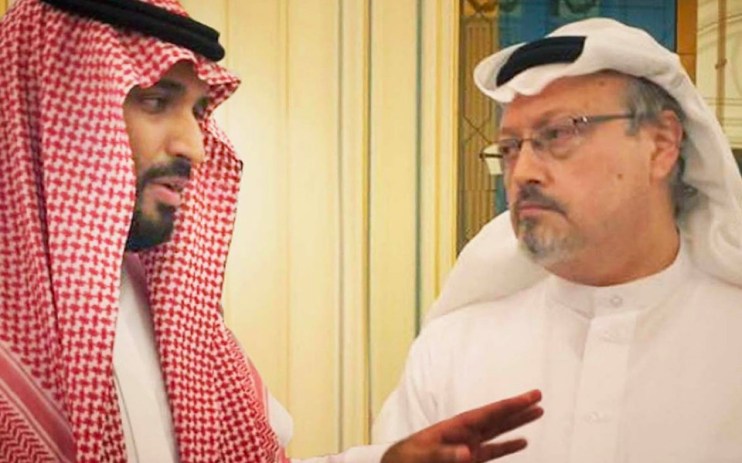The Dissident examines Saudi murder of Jamal Khashoggi

On 2 October 2018, Washington Post journalist Jamal Khashoggi was murdered by agents of the Saudi Arabian government at their consulate in Istanbul.
The assassination sent shockwaves around the world, as it came to discover the unthinkable act of a government brazenly killing a writer known for his criticisms of them. What this meant for free speech, and the Middle East’s attempts to emerge as a modern international power, is examined in a new documentary by Bryan Fogel (2017’s Icarus).
With an ever-present, ominous soundtrack, this documentary assumes you know what’s coming and so focuses on the events that led to Khashoggi’s death. We get the idea of the man, someone who is passionate about his country, and for years content to abide by the unspoken rules of journalism in the nation – being largely pro-government, while pushing the limits to get his message across.
A surprise key figure in this story is Twitter, the now ubiquitous social media network that provided a platform for an American President, and became a tool for Saudi citizens on both side of the political divide. Those with concerns could voice them with relative anonymity, until they are seized upon by “The Flies”, thousands of government-mandated trolls tasked with drowning out dissenting voices or trends with propaganda and threats.
This may all sound a bit familiar, and there is a mirror with Western society in the way social media has seemingly been used by governments to bend populations to their will. Just as an oppressive nation might use force to keep its citizens in line in the streets, so too it seeks to have a hand in controlling online discourse. The ease and scope of these operations is shocking to see, as we learn that Khashoggi’s follower count became as dangerous as his column inches.
Looming large is the figure of Mohammed bin Salman, the crown prince of Saudi Arabia, and the man at the head of the assassination plot. Desperate to present himself and his country as a modernised nation with its #Vision2020 project, the dark reality is a leader with the power to eliminate any and all threats, as well as the will to do so.
On the side of justice, Canada-based activist Omar Abdulaziz recalls his collaborations with Khashoggi and his continuing fight to reach the young citizens of his country, at great personal cost. There’s also the heart-breaking perspective of Hatice Cengiz, his fiancé and the last person to see him alive before he entered the consulate. As she sits in her partner’s favourite chair and quietly strokes the arm, we see the humanity behind the headlines.
It also casts a critical eye on the leaders that have ignored the emphatic conclusions from the CIA and UN investigations. Donald Trump is seen alongside the crown prince, and insists that his denial of any involvement in the murder is more convincing to him than his own intelligence agencies. Given the investment between the two nations, it would appear that money talks in that instance, although even billionaires aren’t above interference. Jeff Bezos, Amazon mogul and in a sense Khashoggi’s boss as owner of The Washington Post, distances himself from #Vision2020 only to suffer an alarming security breach.
With a two-hour running time and an understandably sombre tone, The Dissident can feel like an exhausting investigation, but it’s also an important one. It looks at the fragility of free speech, the dangerous potential of our connected lives, and the horrifying cost of standing up for what you believe.
The Dissident premieres Friday 6 March as part of Glasgow Film Festival, available to watch online here.